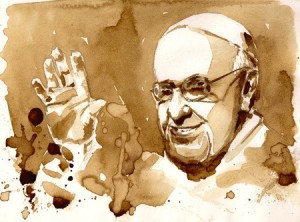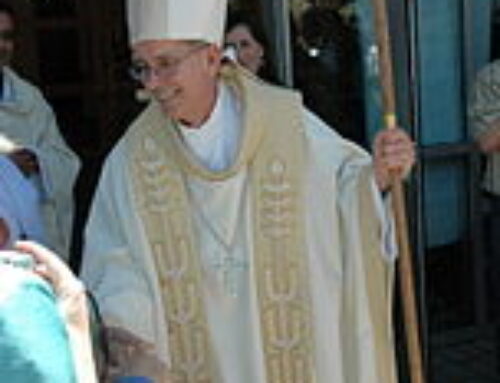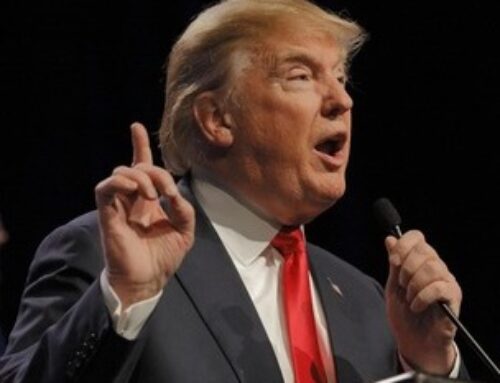 The fourth meeting of “Popular Movements “was held in October, 2021 and sponsored by “People Improving Communities through Organizing” (PICO), the Vatican, and the “Catholic Campaign for Human Development,” an organ of the U.S. Conference of Catholic Bishops (USCCB). Two of the three represent the Catholic hierarchy, and the third was created by a Catholic priest. All three sponsoring organizations embrace left-wing political thinking!
The fourth meeting of “Popular Movements “was held in October, 2021 and sponsored by “People Improving Communities through Organizing” (PICO), the Vatican, and the “Catholic Campaign for Human Development,” an organ of the U.S. Conference of Catholic Bishops (USCCB). Two of the three represent the Catholic hierarchy, and the third was created by a Catholic priest. All three sponsoring organizations embrace left-wing political thinking!
Before turning to Pope Francis’ keynote address at the meeting, an explanation of PICO is in order.
The organization was founded by a Jesuit priest, John Bowman, a community activist who together with Tom Gaudette and Scott Reed shaped the organization according to the principles and strategies of Saul Alinsky, the author of Rules for Radicals, which he dedicated to Lucifer (aka Satan). His stated goal was to “create a Socialist State,” and his strategies included these:
Gaining control of the healthcare system; increasing the poverty level to make the poor rebellious; increasing the debt and taxes; enacting gun control; using welfare to take away people’s self-defense; controlling what people read and listen to; undermining belief in God; and stoking discontentment by dividing people into wealthy and poor. [The realization that these strategies have already succeeded is unnerving.]
The Alinsky influence helps explain this statement by his devotee Scott Reed several years ago: “All of us have been profoundly affected by Black Lives Matter, the immigrant rights movement, certainly the #MeToo movement . . . We are fighting the criminalization of people of color—working to reduce gun violence and mass incarceration in our communities. That work is relationally connected to Black Lives Matter. Because of some of our faith commitments and connections, we had a lot of folks in Ferguson that began to connect us to police brutality.”
Now let’s turn to Pope Francis” keynote address, which offered not criticism but praise and encouragement to the activists. After thanking them for opposing “the culture of privilege,” he condemned the “culture of indifference” displayed by “big media” and “opinion makers” and praised the activists for “confront[ing] together the populist discourses of intolerance, xenophobia [and]. . . hatred of the poor.”
Francis then noted that when he thinks of the Good Samaritan, he is reminded of the murder of George Floyd, and he thinks (with obvious fondness) of those who gathered in protest—he calls them the “Collective Samaritans.”
Francis went on to urge a number of actions. One was “humane distribution” of wealth, adding that “it is up to governments to establish tax and redistribution schemes . . . .” Another was to provide “a basic incomeor salary to everyone in the world,” and to shorten the workday . . . so that more people can have access to the labour market.” Others included having “pharmaceutical companies release their patents,” having financial groups cancel the debts of the poor; having “mining, oil, forestry, real estate, agribusiness [companies] stop destroying forests, wetlands and mountains, stop polluting rivers and seas, [and] stop poisoning food and people”; having “the great food corporations stop imposing monopolistic systems of production and distribution that inflate prices . . .”; having “technology giants stop exploiting human weakness [and] people’s vulnerability, for the sake of profits without caring about the spread of hate speech, . . . fake news, conspiracy theories, and political manipulation”; and having “powerful countries stop aggression, blockades and unilateral sanctions against any country anywhere on earth. No to neo-colonialism.”
I have added bold type to certain words in the three previous paragraphs so that readers can more easily reference them as I discuss their genesis and import.
The following terms of Francis were likely borrowed from left-wing media attacks on conservatives in general and Donald Trump in particular: “intolerance,” ”xenophobia,” ”hate speech,” “fake news,” “conspiracy theories” “unilateral sanctions,” and “neo-colonialism.”
These words seem directly out of the Climate Change playbook: “destroying,” “polluting,” and “poisoning.”
These words, and the concepts they denote, are almost pure socialist-talk: “culture of privilege,” “governments . . . establish tax and redistribution,” “imposing monopolistic systems,” “exploiting human weakness.”
Francis’ term “Collective Samaritans” he may have invented. It differs from the other phrases that it weds a communist term with a Gospel name. (Whether this is symbolic of a pattern of thought Francis finds appealing is not clear.)
Francis’ phrase “confront[ing] . . . populist discourses” is perhaps the most revealing of all the terms he chose. The use of the word “populist” here has a negative connotation; otherwise, he wouldn’t praise activists for confronting it. Yet historically the word had a positive connotation; dictionaries still define it as “supportive of the rights and power of the people,” a decidedly favorable condition, at least in a democracy. If memory serves, it was only when Donald Trump advanced populist policies that the term lost favorable status. Whether Pope Francis is showing his animosity toward Trump or his linguistic borrowing from left-leaning media (or both) I cannot say.
Francis’ statements about providing a “basic income or salary to everyone” and “shorten[ing] the workweek . . . so that more people can have access to the labour market” are, to be charitable, ill-considered. Receiving income without working creates a sense of entitlement that can lead to disinclination to working and increased dependency on others, and the Gospel warns against that. (See 2 Thessalonians 3:10) And shortening the workweek is unlikely to create access to today’s labor market, which is increasingly skill-based. Unemployed workers who lack the requisite skills will hardly be able to fill skilled positions!
As I have shown, Pope Francis regards protesters as his sheep and he pastors them with compassion and love. That response can be virtuous, but only if the context in which it occurs is based on reality. In this case, Pope Francis’ pastoring is not. Far from it, and here is why:
The protest movements Francis praises, and USCCB and PICO sponsor, may be well-intentioned and partly laudable, but in the main they are rooted in an evil philosophy (Socialism) and pursued with strategies designed to please—not Jesus—but instead Alinsky’s mentor Lucifer, while causing suffering and hatred for humankind.
Francis is shamefully blind to the harm that has been done around the world by left-wing activism—replacing reason with blind rage, burning buildings, looting stores, destroying monuments built to honor noble men and women, undermining law and order, installing governments more corrupt than the ones they replace, assaulting/raping/murdering innocent people, stoking fear, resentment, and hate, and sowing contempt for morality and religious devotion.
I say “shamefully” because it is inconceivable that he does not know better. After all, he lived most of his life in a country that experienced all these evils, and has seen them repeated in other countries and on other continents ever since. To be more specific, he has seen them threatening the very survival of the country most dedicated to Judeo-Christian values, the United States. And yet he does not condemn but instead praises the very forces that seek to destroy this country and its values.
Nor is he alone in this shameful posture. The U.S. Conference of Catholic Bishops and the largely Catholic activists of PICO share it.
Older Catholics like this author will remember the time when we respected the hierarchy, and not just because it was the polite thing to do, but because they earned and therefore deserved respect. We looked to them for insight and wisdom and were seldom disappointed. We had a sense that not only was the Holy Spirit guiding them, but that they were attuned to His message. Today, the evidence is mounting that they are no longer attuned, and the Church and the world are much the worse for it.
Copyright © 2021 by Vincent Ryan Ruggiero. All rights reserved


